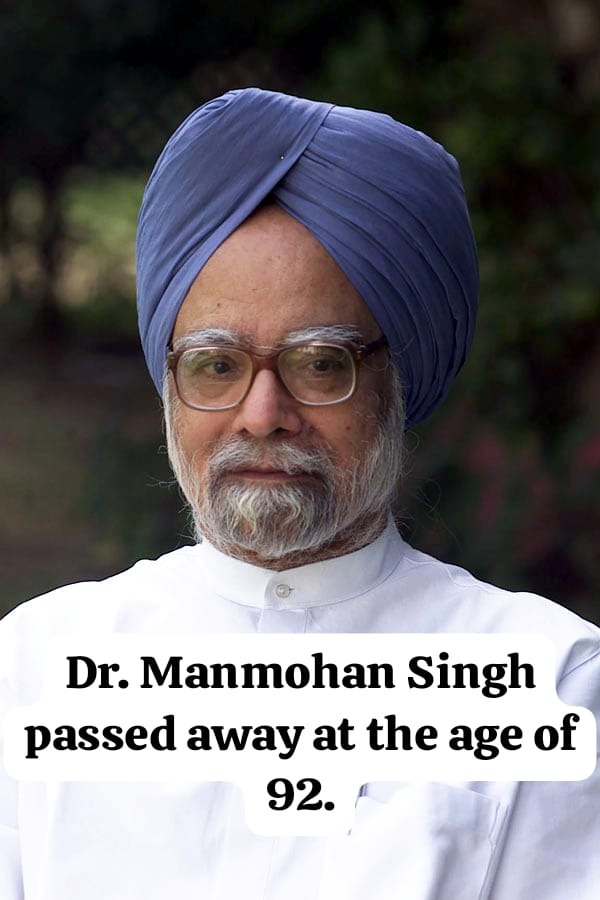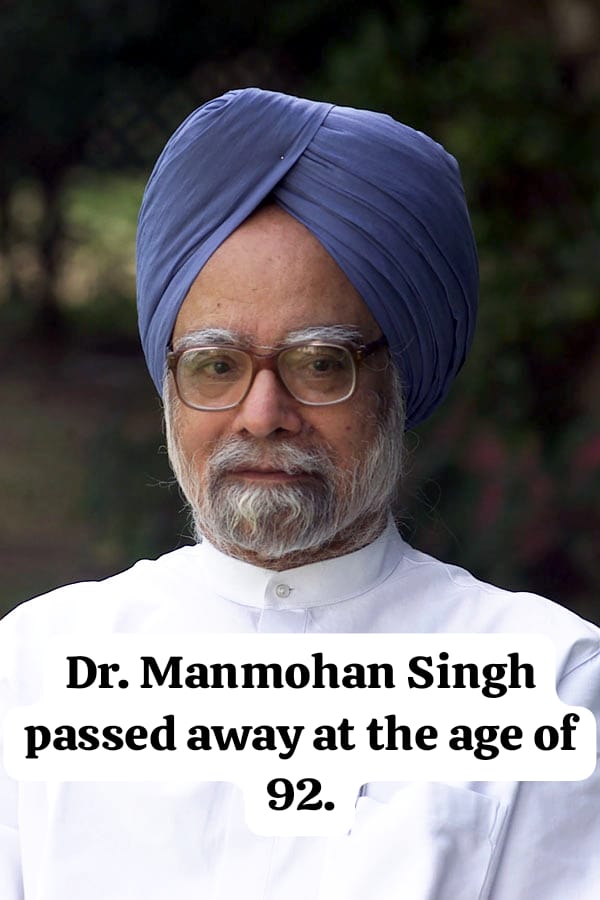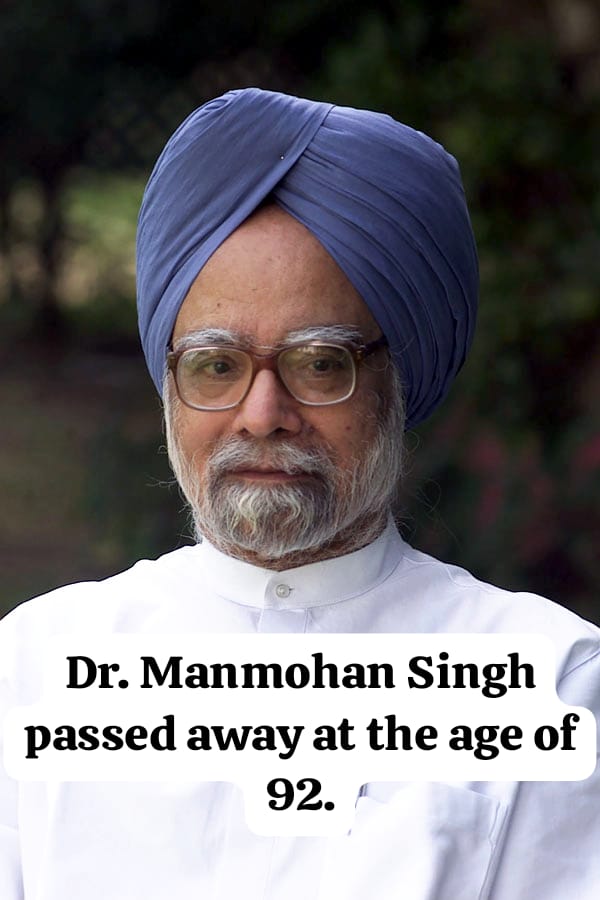Sandeep Dhand
Journalist
( Nutritionist And Health Educator )
Dr. Manmohan Singh is regarded as one of India’s longest-serving Prime Ministers, earning widespread respect for his impeccable integrity.
He is credited as the architect of India’s economic liberalization, first as Finance Minister and later as Prime Minister from 2004 to 2014. After Jawaharlal Nehru, he became the second Prime Minister to serve a full term and get re-elected, and the first Sikh to hold the position. He also publicly apologized in Parliament for the 1984 anti-Sikh riots, which led to the tragic loss of around 3,000 Sikh lives.
However, his second term as Prime Minister was overshadowed by allegations of corruption and scandals, which many believe contributed to a humiliating defeat for his party in the 2014 general elections.

Born on September 26, 1932, in a remote village in undivided Punjab, he grew up in a region lacking even basic amenities like electricity and water. After completing his education at Punjab University, he pursued a master’s degree at Cambridge University and later earned a DPhil from Oxford University.
His daughter, Daman Singh, wrote about the financial struggles he faced during his time at Cambridge, where his tuition and living expenses amounted to 600 pounds annually. A scholarship from Punjab University covered only 160 pounds, leaving him reliant on his father for the rest. Despite these challenges, he lived a modest life, even relying on inexpensive meals at dining halls.
Manmohan Singh rose to prominence in Indian politics in 1991 when he was appointed as Finance Minister, a period when the nation was on the brink of economic collapse. His appointment marked a turning point in his career, transitioning from an academic and administrator to a key political figure. Before this, he served as an economic advisor to the government and Governor of the Reserve Bank of India.
As Finance Minister, his first budget speech included a famous quote by Victor Hugo: “No power on earth can stop an idea whose time has come.” This marked the beginning of unprecedented economic reforms, including tax reductions, devaluation of the Indian rupee, and privatization of state-owned enterprises to attract foreign investment. These reforms revitalized the economy, curbed inflation, and maintained high growth rates throughout the 1990s.
Despite his achievements, Singh knew he lacked a strong political base. He once remarked, “It is good to be a politician, but in a democracy, to become a politician, you first need to win elections.” His attempt to win a Lok Sabha seat in 1999 was unsuccessful, though he was later nominated to the Rajya Sabha by his party.
In 2004, he was unexpectedly chosen as Prime Minister after the party’s leader stepped aside. This decision was seen as a strategic move to deflect criticism over her foreign origins. Critics argued that real power rested elsewhere, leaving Singh with limited autonomy.
His first term saw significant accomplishments, including a landmark nuclear deal with a global superpower, which ended India’s decades-long nuclear isolation. However, the deal came at a cost, with one of the government’s allies withdrawing support. The government survived a confidence vote, but not without facing allegations of vote-buying.

Known as a consensus-builder, Singh led a coalition government comprising regional parties with differing agendas, a challenging task in itself.
While he was admired for his honesty and intellect, critics often labeled him indecisive and lacking assertiveness. Some argued that the pace of reforms slowed under his leadership compared to his tenure as Finance Minister.
When his party returned to power in 2009, he expressed confidence in meeting public expectations. However, his second term was marred by controversies, including massive scams involving billions of dollars and corruption allegations against cabinet ministers. These issues stalled parliamentary proceedings and led to economic stagnation.
A senior opposition leader famously called him the “weakest Prime Minister,” a claim Singh countered by emphasizing his commitment to national welfare.

On the foreign policy front, he maintained pragmatic diplomacy, continuing peace talks with neighboring countries despite disruptions. Efforts were made to resolve long-standing border disputes and reopen important trade routes. He also increased financial aid to war-torn nations and visited regions after decades, signaling renewed ties.
Domestically, however, Singh faced criticism for a series of policy missteps. The allocation of resources in a key scandal brought allegations of illegal licensing, prompting legal proceedings against him. Singh defended his silence by stating, “Silence is sometimes better than a thousand answers.”
In his later years, he remained a respected figure within the political landscape, offering guidance to his party. Amid the economic challenges posed by a global pandemic, he suggested direct financial aid to citizens, support for businesses, and strengthening the financial sector.
History will remember him as a leader who pulled the country out of economic and nuclear isolation, though some argue he should have retired earlier. Reflecting on his legacy in 2014, he remarked, “I sincerely believe that history will be kinder to me than the contemporary media or opposition parties in Parliament.”
Manmohan Singh is survived by his wife and three daughters.